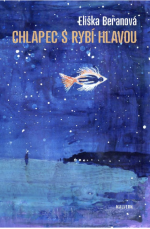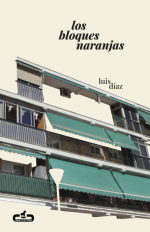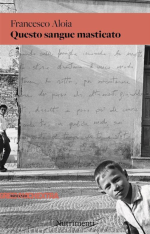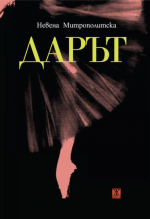View all filters
Clear

Corridoio (Peninsula)
Translated from
Dutch
to
Italian
by Matilde Soliani
Written in Dutch by Lieven Stoefs
8 minutes read

Il ragazzo con la testa di pesce
Translated from
Czech
to
Italian
by Marco Maria Baù
Written in Czech by Eliška Beranová
9 minutes read

Момчето с рибята глава
Translated from
Czech
to
Bulgarian
by Katerina Stoyanova
Written in Czech by Eliška Beranová
8 minutes read
Amanhã
Written in Portugese by Patrícia Patriarca
8 minutes read
Dům v Haifě
Translated from
Slovenian
to
Czech
by Kateřina Honsová
Written in Slovenian by Andraž Rožman
8 minutes read
Una declaración de dependencia
Translated from
Dutch
to
Spanish
by Guillermo Briz
Written in Dutch by Rebekka de Wit
9 minutes read
Alle dieren van het veld
Translated from
Spanish
to
Dutch
by Joep Harmsen
Written in Spanish by Adriana Murad Konings
9 minutes read
Bestie voi tutte dei campi
Translated from
Spanish
to
Italian
by Ilaria Garelli
Written in Spanish by Adriana Murad Konings
8 minutes read

Los bloques naranjas
Una ventana a la amistad masculina: la corporalidad y los afectos truncados, torpes, subterráneos, que se dan en una pandilla de chicos de barrio durante los 2000.
Written in Spanish by Luis Díaz
8 minutes read

Ta prežvečena kri
Translated from
Italian
to
Slovenian
by Zarja Lampret Prešeren
Written in Italian by Francesco Aloia
9 minutes read

Гірка кров
Translated from
Italian
to
Ukranian
by Olena Roman
Written in Italian by Francesco Aloia
8 minutes read

El regalo
Translated from
Bulgarian
to
Spanish
by Marco Vidal
Written in Bulgarian by Nevena Mitropolitska
10 minutes read
Uma declaração de dependendência
Translated from
Dutch
to
Portugese
by Pedro Viegas
Written in Dutch by Rebekka de Wit
10 minutes read
Logboek van een laatste dag
Written in Dutch by Lotte Lentes
9 minutes read
Manevră
Translated from
Dutch
to
Romanian
by Cătălina Oșlobanu
Written in Dutch by Simone Atangana Bekono
8 minutes read

Coridor (Peninsula)
Translated from
Dutch
to
Romanian
by Andreea Bălteanu
Written in Dutch by Lieven Stoefs
8 minutes read

Di me non sai
Lucio falls in love with "the boy" even before meeting him: just watching him from the window of his office is enough for him to become almost obsessed. When they finally meet, he discovers that Davide is much younger than him (still studying), and that he is elusive, unreliable, and "cruel" in the way only twenty-year-olds can be cruel.
For two months, Lucio and Davide have dinner together, have sex, go to the beach, and often sleep at Lucio's place. However, Davide does not fall in love. He continues to seek Lorenzo, the only man he (perhaps) truly loved, of whom he keeps only a pixelated photo on an old cellphone. Like many twenty-year-olds, he is also confused, wounded, and willing to nestle into the routine of always having a Coca-Cola ready for him in the refrigerator.
"Di me non sai" tells the story of a relationship lived in an opposite, incompatible way, whose nature is revealed to the reader only as the novel progresses. Alternating the perspectives of the two protagonists in short, sometimes very short chapters, Raffaele Cataldo shows the misalignment of feelings and the painful consequences it can have, the slow pace of hot Apulian summers, and the obsessive loves (present and absent) that, like wild oat seeds, cling to hair, shoes, and clothes.
Written in Italian by Raffaele Cataldo
4 minutes read
Morgen
Translated from
Portugese
to
Dutch
by Finne Anthonissen
Written in Portugese by Patrícia Patriarca
9 minutes read

Тази дъвкана кръв
Translated from
Italian
to
Bulgarian
by Brigitte Mancuso
Written in Italian by Francesco Aloia
9 minutes read
Fulgerări
Translated from
Italian
to
Romanian
by Elena Damaschin
Written in Italian by Sara Micello
7 minutes read